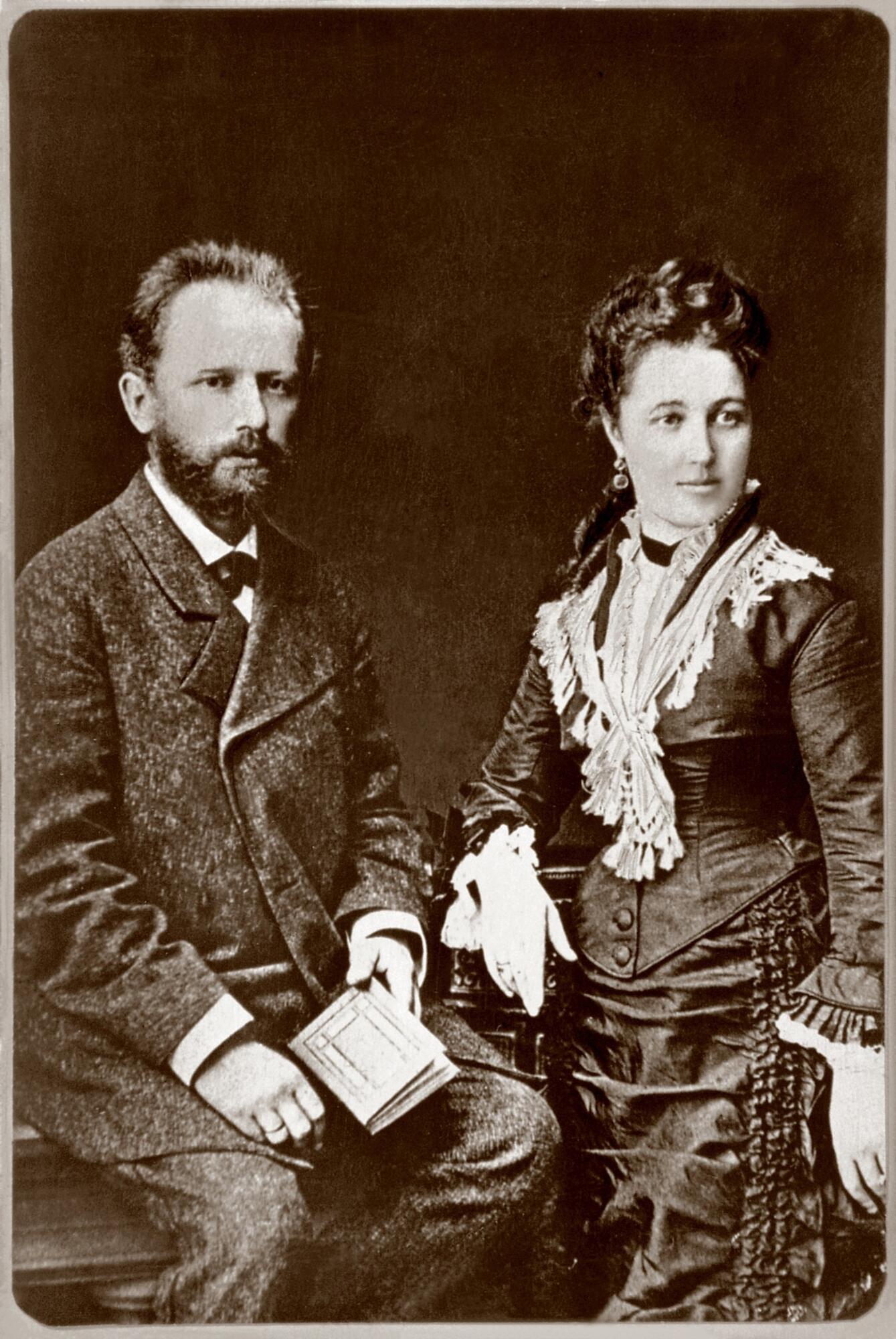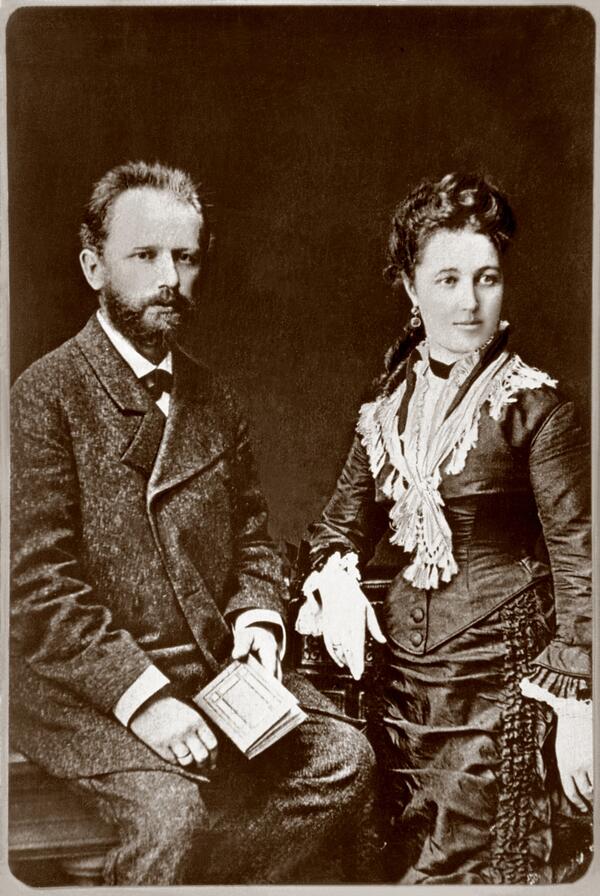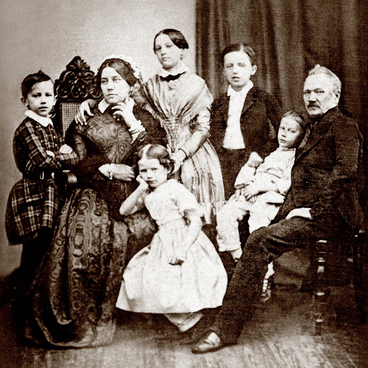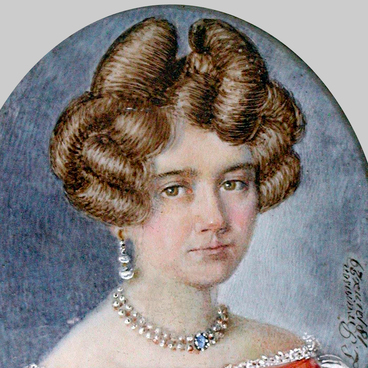Antonina Milyukova was born into a noble family that did not have a high income. She studied at the Moscow-based Elizabeth Institute and later joined the Moscow Conservatory which, however, she never graduated from. Milyukova met the composer during a reception at her brother’s and instantly developed warm feelings towards Pyotr Tchaikovsky. Tchaikovsky and herself met almost every day at the Conservatory. They had a four-year fling.
In April 1877, Pyotr Tchaikovsky received a letter from AntonIna Milyukova confessing her love. Several months prior, the composer had written to his close ones that he was planning to say “goodbye” to bachelorhood and get married in the near future. It was both his personal desire and his wish to do his father’s will, who wanted Pyotr to start a family.
The composer agreed to meet Milyukova and decided to marry her after the visit. It was a marriage of convenience: Tchaikovsky believed he could marry a woman who would become his friend, love him like a brother, and make a good match for him in social circles. Even before the wedding, the composer confessed to his bride that he had no feelings towards her, but said he would try to become her good friend.
Their wedding took place at the Church of Saint George on Malaya Nikitskaya street in Moscow on July 6. It’s fair to say that Tchaikovsky barely knew his wife: two months before they met, he had mainly stayed at his friends' estate, working on his opera Eugene Onegin. He did not have a spare minute to meet his future wife. They started to communicate properly only after the wedding. To Tchaikovsky’s great disappointment, he did not even begin to like her as a friend. In letters to his close friend, Nadezhda von Meck, the composer wrote: ‘You must be surprised that I dared connect my life with such a strange friend. I cannot fathom it myself. I must have been delusional’.
In just two months after the wedding, Tchaikovsky was exhausted from constant emotional stress, so he left for St. Petersburg to his brother Anatoly, and then to Switzerland. He later asked AntonIna Milyukova for divorce, but she refused: back then, the church would only grant a divorce if one of the partners confessed to adultery. Thus, Pyotr Tchaikovsky remained married all his life. During his lifetime and after the composer’s death, his spouse was receiving an allowance as per his will. In 1896, AntonIna Milyukova was admitted to a mental institution at Udelnaya station near St. Petersburg, where she spent the rest of her life.
In April 1877, Pyotr Tchaikovsky received a letter from AntonIna Milyukova confessing her love. Several months prior, the composer had written to his close ones that he was planning to say “goodbye” to bachelorhood and get married in the near future. It was both his personal desire and his wish to do his father’s will, who wanted Pyotr to start a family.
The composer agreed to meet Milyukova and decided to marry her after the visit. It was a marriage of convenience: Tchaikovsky believed he could marry a woman who would become his friend, love him like a brother, and make a good match for him in social circles. Even before the wedding, the composer confessed to his bride that he had no feelings towards her, but said he would try to become her good friend.
Their wedding took place at the Church of Saint George on Malaya Nikitskaya street in Moscow on July 6. It’s fair to say that Tchaikovsky barely knew his wife: two months before they met, he had mainly stayed at his friends' estate, working on his opera Eugene Onegin. He did not have a spare minute to meet his future wife. They started to communicate properly only after the wedding. To Tchaikovsky’s great disappointment, he did not even begin to like her as a friend. In letters to his close friend, Nadezhda von Meck, the composer wrote: ‘You must be surprised that I dared connect my life with such a strange friend. I cannot fathom it myself. I must have been delusional’.
In just two months after the wedding, Tchaikovsky was exhausted from constant emotional stress, so he left for St. Petersburg to his brother Anatoly, and then to Switzerland. He later asked AntonIna Milyukova for divorce, but she refused: back then, the church would only grant a divorce if one of the partners confessed to adultery. Thus, Pyotr Tchaikovsky remained married all his life. During his lifetime and after the composer’s death, his spouse was receiving an allowance as per his will. In 1896, AntonIna Milyukova was admitted to a mental institution at Udelnaya station near St. Petersburg, where she spent the rest of her life.



